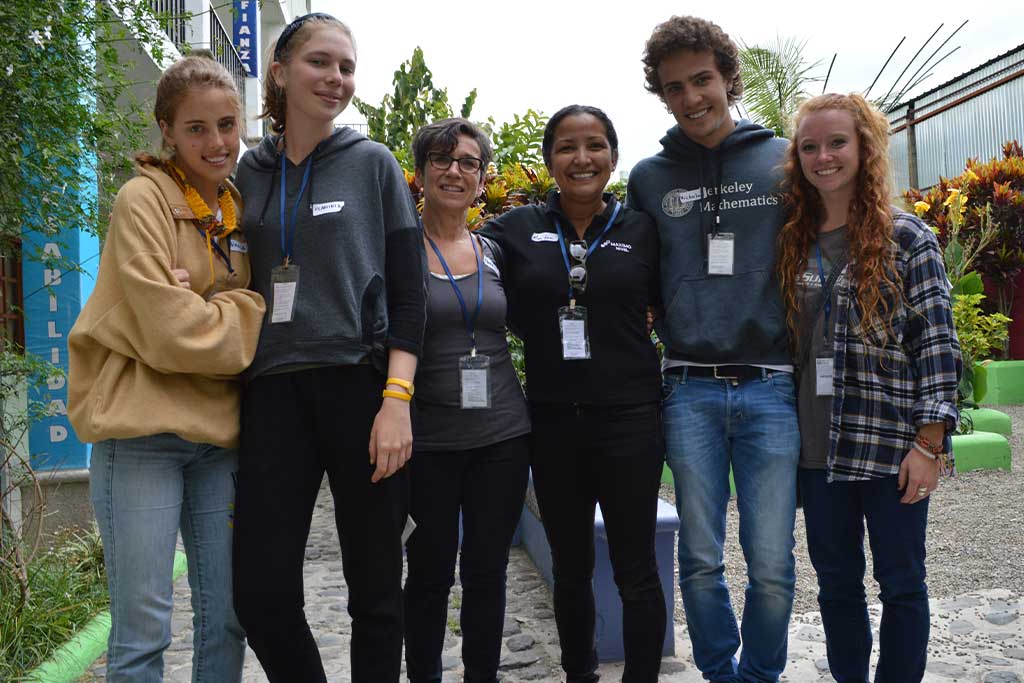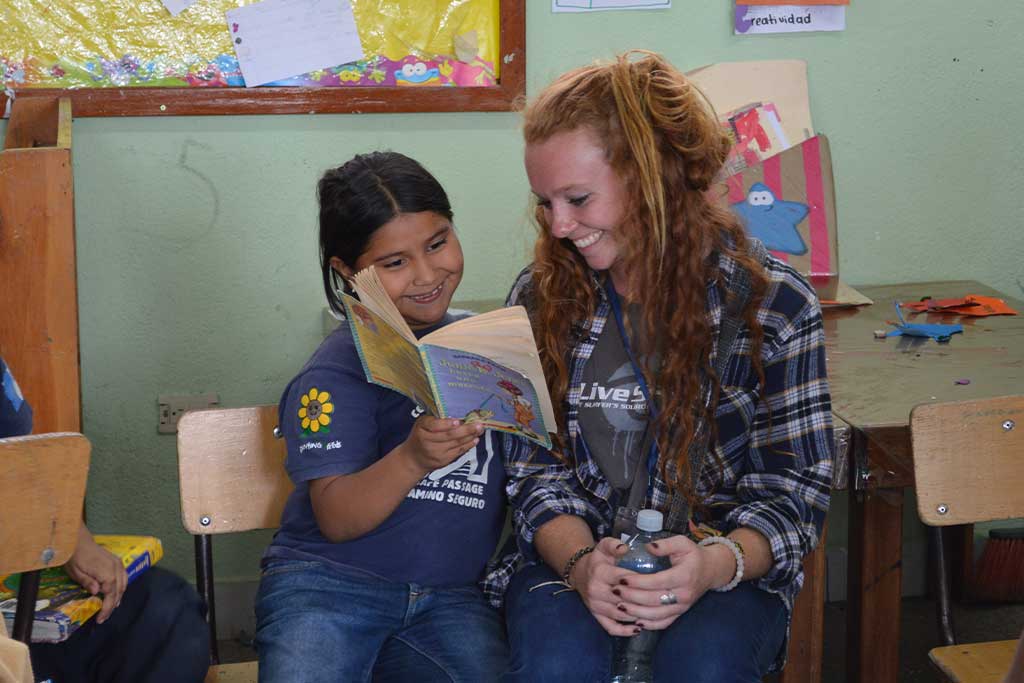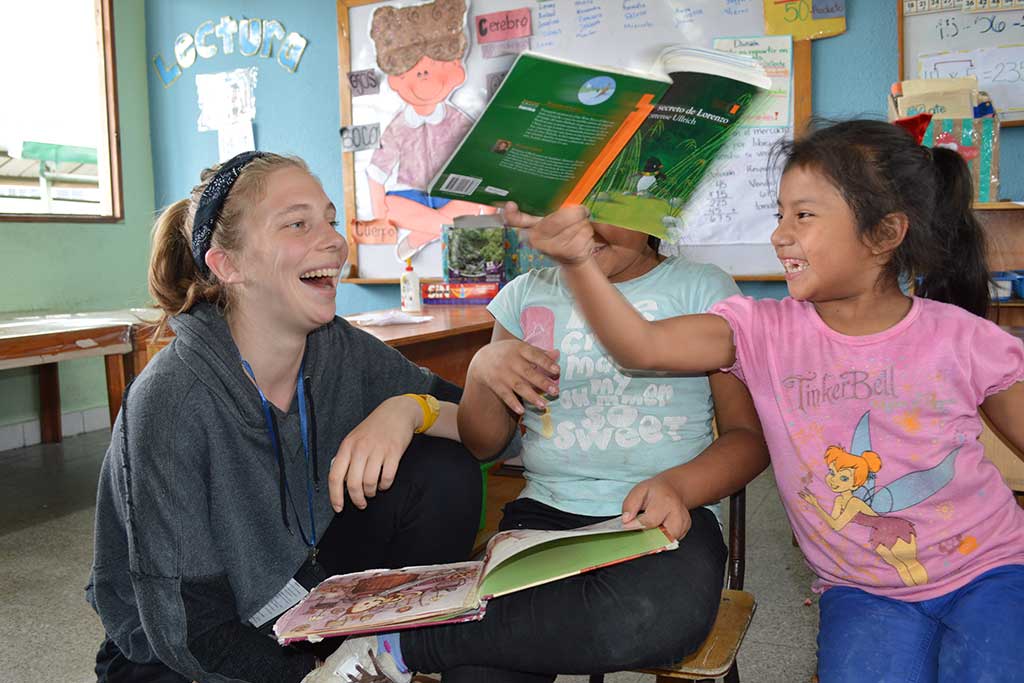Working at a school is one of the most interpersonal jobs you can have. I decided to major in elementary education because of the influence teachers have on the lives of their students. I want to make a difference in the success of individuals, especially those who are not receiving academic support or emotional encouragement at home. But even though I am currently studying education at university, I don’t spend much time interacting with students.
Apart from observation hours, the majority of my training in the first two years of my program had taken place within a university setting. I was learning a lot about lesson planning and teaching strategies, but I wasn’t practicing in a real classroom. I was missing the interpersonal spark—the very reason I’d chosen to become a teacher. So, at the end of my last semester, instead of returning to my regular summer coffee shop job, I began exploring internship opportunities.
I didn’t want to wait for my student teaching placement in the ultimate semester of my credential program to walk into a classroom. And while I was researching my options, I began to realize that there was no reason I had to stay in the States. I had always kept a part-time job to help pay for school, so I hadn’t been able to study abroad. If I interned in another country, I could combine practical work experience with cultural immersion. That’s why I reached out to Maximo Nivel to learn more about their education internship program in Latin America.

I was very drawn to the idea of gaining classroom experience in an international context. I would be exposed to new cultural and classroom customs. A fresh perspective could also help me approach instructional strategies and curriculum alignment more creatively. And working with students from another country would better prepare me for teaching a diverse student base in my future classroom. So, I spoke with the admission team at Maximo and decided to spend two months at a primary school in Antigua Guatemala.
My placement was at an early childhood education center in Antigua, Guatemala. Because I was at a private bilingual school, I was able to deliver my lessons in English. However, I also took an hour of Spanish every day, and used what I was learning to connect with my students on the playground and during homework help. I appreciated this balance between improving my Spanish skills and teaching primarily in English. I was also assigned a mentor teacher to guide me through the internship. I was getting a taste of student teaching with an international twist.
During my internship, I was a teaching assistant. I was always present in the classroom and available to offer one-on-one support. But at least three times a week, I was also given the opportunity to teach lessons that I had designed. Receiving feedback after I taught helped me to improve more than I ever had from simply writing lesson plans. If you never put what you are planning into practice, you’ll never know what to change. The teacher I worked under was very constructive, and it was easy to apply her feedback as I was being given opportunities to practice every day.

The school I was placed at had a very small student body, which allowed learning to be very personalized. The teacher I worked with advocated for the learning needs of each and every one of her students. And though this might sound like the mark of any good teacher, individualized learning needs are too often overlooked in Guatemala’s public school system. Students with learning disabilities usually go undiagnosed and get stuck cycling through the same grade over and over. In addition to learning challenges, a myriad of other obstacles cause many Guatemalan citizens to drop out of school.
Health and financial factors contribute to sporadic attendance. Unfortunately, a high percentage of the population does not even complete their primary education because they have to help put food on the table. The private education sector has, therefore, become a vital part of giving Guatemala a brighter future. However, private school is not financially realistic for many families. This is why the school I interned at targets at-risk children in Antigua and the surrounding area; most of its students commute from the nearby suburb of Jocotenango.
Because such a high number of Guatemalans don’t finish their elementary education, the school offers scholarships to families who value learning but could not otherwise afford to send their children to a private school. Their sponsorship program is made possible by partnerships with various foundations and volunteer organizations. Together they are working to close the gap in educational access and keep kids in school. By getting kids engaged in their own learning from an early age, teachers are improving the chances of them completing high school.

Improving education statistics is essential for the wellbeing of Guatemala. Students who commit to their learning from a young age are more likely to meaningfully contribute to their community’s economy someday. The school recognizes this interconnectivity and uses education as a basis for community outreach. For example, while I was there, the children were running a foodrive. Students are both receiving help from their community and learning to give back. Parents are encouraged to become involved in their kids’ education because the greater the support system, the less likely it is for students to drop out.
In addition to core subjects, the school’s teaching staff drives students to think ethically. The project approaches education holistically by motivating students to play sports, offering physicals on campus and including community service requirements in the curriculum. Physical health, strong values and academic excellence are interwoven in the students’ everyday lives rather than being perceived as separate concerns. Therefore, the children are not only given access to education, they are wired to become responsible citizens.
At the same time that this private school is creating change in its country’s education system, it is also bringing up students who will create change in their communities. In addition to giving me valuable instructional experience, my internship taught me to look at education in conjunction with students’ overall wellbeing. Education, nutrition and social responsibility are all innately connected. I now know that I want my future teaching style to be not only interpersonal but also seamlessly interdisciplinary.
